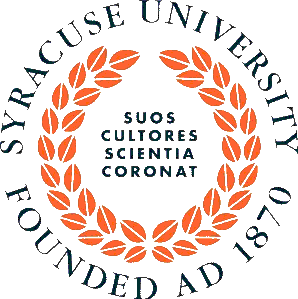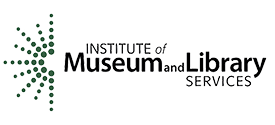What Mentoring Is Not
Mentoring is not:
- Hand holding - Your job is not to be side-by-side walking your mentee through achievement of their project or activity. Nor is it to keep them under your wing. The goal is to encourage and support independence rather than dependence.
- Teaching - While you can't "teach" mentoring per se, there will be times, especially in a school setting, where you will design and teach lessons, to your mentees individually, in small groups or to an entire class, that focus on important inquiry skills they will need during the innovation process. For example, during the idea generation stage of innovation, you might teach those "I wonder" skills like brainstorming and how to ask good questions. When working with a young innovator, you will likely find yourself placed in spontaneous "teachable moments" which you will address as they occur. For example, your mentee may need information from the U.S. Patent & Trademark Office database but not know how to narrow their search of determine the best search terms, which would allow you to seize this teachable moment and teach the skills they need. So, while the emphasis is on self-directed learning during the mentoring process, when working with young children there may be times when some formal and informal instruction is needed.
- Mothering – The mentoring relationship should be a safe one; that is, the young innovator mentee must feel safe enough to explore and challenge her ideas. Mothering promotes safety, but it also inhibits the mentee from taking risks.
- Protecting – Good intentions doesn't equate to good mentoring or to learning. Support your young innovator mentee as he works on achieving successful outcomes and encourage him to be accountable for his own learning.
- Shadowing – Shadowing provides an excellent learning opportunity, but it isn't a substitute for the deep work of mentoring. If you have a young innovator shadow a more skilled experienced innovator, make sure you spend time in conversation identifying what they are going to learn and debriefing what they took away from the experience.
Some people confuse mentoring with terms like counseling and coaching.
Do you know the differences among these three terms?
The chart below compares the three methods of support.
|
Counseling
|
Coaching
|
Mentoring
|
Understanding the Differences
Let's take a closer look at the factors that differentiate these other types of support from mentoring.
Counseling
- Past - Counseling is usually focused on an event, feeling or emotion that stems from something in the past and is now emerging in the present that is getting in the way.
- Uses intervention techniques - Counseling requires the intervention of an advisor or professional who will provide techniques or steps to help the person move past what is blocking them.
- Focuses on career issues and providing emotional support Counseling deals with negative feelings, emotions or behaviors that are getting in the way of career success.
- Usually 1:1.
- Confidentiality is a priority.
You probably have guidance counselors or other types of counselors in your school or district. Counseling provides guidance to help a person handle problems or make decisions. It often employs psychological method through personal interviews and testing. (Merriam-Webster Dictionary)
Coaching
- Present - Coaching focuses on increasing performance in the present.
- Contractual - in some cases, coaches are hired to address specific skill deficiency.
- Established field of practice - It includes standards for certification, research, theory and practice.
- Focuses on boosting performance - coaching is focused on skill building and raising the level of measureable performance.
- Tangibles - since skills are doable, and measurable, they produce tangible results.
- 1:1 Coaching generally relies on Face to Face interactions.
- Processes and procedures - skills are developed through replicable models, processes and procedures that can be transmitted to others.
- Short-term - Coaching takes place until the learner has acquired the requisite skills
- Coach-driven process - the coach determines what needs to be learned and how it will be presented.
You also probably have coaches, typically in athletics, in your school or district. Coaching is a kindred spirit of mentoring. All mentors are coaches, but not all coaches are mentors. Coaching often involves teaching or training.
Now, let's look at mentoring and see how it compares to those two support methods.
Mentoring
- Future - mentoring focuses on what is possible and taps into future potential.
- Voluntary - mentoring only works when a mentee desires to work on their own development.
- Organic - Over time as the relationship develops and trust is established goals and development needs surface organically.
- Focuses on development intangibles - while skills are sometimes addressed, much of the growth and development come in the form of intangibles like confidence and presence.
- Soft skills - rather than hard skills, mentoring develops more soft skills like relationship building, trust, communication, managing emotions, seeing the big picture, thinking strategically.
- Range of learning opportunities - Once goals have been established, mentoring focuses on discovering appropriate learning opportunities for the mentee, rather than the coach-driven central focus.
- Multiple forms - Even though mentoring is often one - on -one it also takes place virtually, and includes many mentors, peer mentors and group mentoring.
Reflecting on Past Mentoring Experiences
Use the definition of mentoring below to answer the following questions.
Mentoring is a learning partnership where mentor and mentee work together to achieve specific, mutually defined goals that focus on developing the mentee's skills, abilities, knowledge and thinking.
Think about a past experience where you have been mentored. It could have been held over a brief period of time (e.g. a day) or over a longer period of time (e.g., a school year).
- On a scale of 1 (low)-10 (high) how would your past mentoring experience(s) measure up?
- What was missing?
- What more would you have liked from your mentor(s)?
The Innovation Destination
The Innovation Destination was designed and evaluated by a team from the Center for Digital Literacy at the School of Information Studies, Syracuse University and developed by Data Momentum Inc, in partnership with the Connecticut Invention Convention, By Kids for Kids, New York On Tech, and over 70 school librarians and young innovators.
This site has been serving the youth invention community from 2015 - present.




